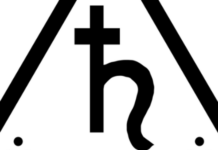I have always liked the motto Aleister Crowley gave to his journal The Equinox: The Method of Science—The Aim of Religion. The first part in particular. Today science is something that many people connect with technology. In some sense, science and technology are inseparable. The beginning of the twentieth century was not without its technologies either. The Equinox began to be published in 1909 and by then, early versions of today’s ubiquitous technologies were emerging. The escalator, air conditioner, neon lights, gas-motor powered airplanes, vacuum diode, sonar, instant coffee, and even the theory of relativity all came to life in the first decade of the twentieth century. But when Crowley stated “The Method of Science…,” he was not talking about any of these technologies, nor ones to come. Instead he was referring to the way science is approached and practiced. Science has a method and at the centre of that method are questions.
When Crowley advanced the method of science it was, more than anything else, an attitude or an approach to reality. It is one of curiosity, open mindedness, and discovery. It was a method that elevates the question and only sees answers as doorways to other questions. For instance, Crowley was quick to experiment with rituals, invent news approaches to magic and initiation, and challenge established structures and groups. Now we find advocates within the Thelemic community bristling at any kind of experimentation. The rituals of Crowley, initiatory or otherwise, have become sacrosanct and stale. In addition, occult writers want you to think they have all the answers. If you have questions or conclusions that challenge their answers, they dismiss you and shut down the conversation. Their work does not open up space for questions, instead it does the opposite. This is against the overall method of science, and thus against the kind of approach to magic Crowley encouraged. Throughout Crowley’s life he asserted the need to experiment, explore, and seek answers for oneself. The goal is to learn by doing, by gaining experience, and by examining the past to improve future results. This is also why he stressed the magical diary. He wanted magicians to keep track of all the factors involved with their work so that, in retrospect, they might identify patterns associated with both failure and success. Just as a scientist records the ways experiments are conducted so they can be recreated, Crowley envisioned the diary to be a tool to help improve magical work.
Recently I listened to an interview of an astrophysicist. He commented that it was more important to embrace questions in science than answers. The interviewer was surprised by this response and quickly quipped, “Isn’t science all about finding answers?” The astrophysicist remarked, “Of course it is. But the best answers lead to more and more questions.” Science, he noted, is driven by questions, not answers. I wonder if the occult community, today, has forgotten Crowley’s motto and that questions drive the method of science, and not answers.
With so many books on occultism trying to answer everyone’s questions, few authors challenge the reader to try to answer questions for themselves. While it is useful to have those who have some experience share it, and a smart person learns from the mistakes and successes of others, this does not mean that the author should explain everything, leaving little to the imagination, and even less motivation for the magician to practice and find answers for themselves. It seems to me that the best essays are ones that talk about the questions that drive the author, perhaps give some of the insight they have obtained, but most importantly, they also discuss the way those answers have led to new questions still waiting to be tackled.
Throughout his life, Crowley was asking himself questions, and he encouraged his students and readers to ask questions. This included questions about the things they read, the rituals they performed, the conditions of their magical work, and even to interrogate the entities they invoked. He embraced the method of science, and thus he embraced questions more than answers. I often challenge myself to remember this in my own work. When I think I have an answer, I ask myself, “so what?” If the answer does not open a new horizon or direction for exploration, then I am clearly missing something.
Image credit: Thierry Ehrmann.








